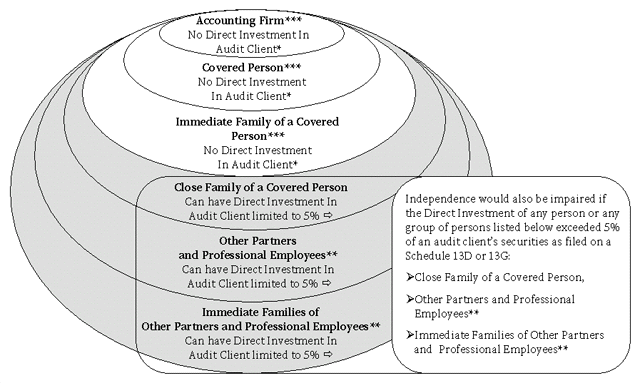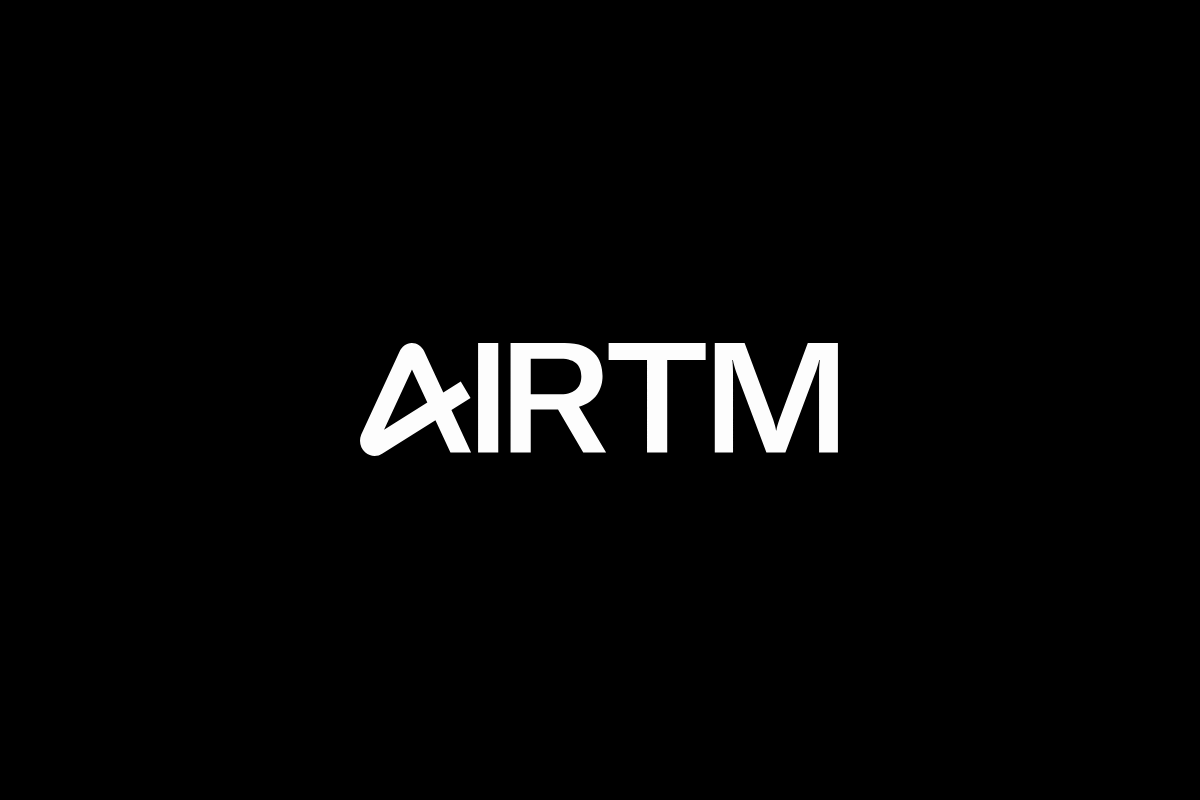Fintech
SEC Updates Auditor Independence Rules

Washington, D.C.–(Newsfile Corp. – October 16, 2020) – The Securities and Exchange Commission today announced that it adopted final amendments to certain auditor independence requirements in Rule 2-01 of Regulation S-X. Informed by decades of staff experience applying the auditor independence framework, the final amendments modernize the rules and more effectively focus the analysis on relationships and services that may pose threats to an auditor’s objectivity and impartiality.
The final amendments reflect updates based on recurring fact patterns that the Commission staff has observed over years of consultations in which certain relationships and services triggered technical independence rule violations without necessarily impairing an auditor’s objectivity and impartiality. These relationships either triggered non-substantive rule breaches or required potentially time-consuming audit committee review of non-substantive matters, thereby diverting time, attention, and other resources of audit clients, auditors, and audit committees from other investor protection efforts. The final amendments result in auditor independence requirements that will be used to evaluate specific relationships and services, with a focus on protecting investors against threats to the objectivity and impartiality of auditors.
“Today’s amendments reflect the Commission’s long-recognized view that an audit by an objective, impartial, and skilled professional contributes to both investor protection and investor confidence,” said Chairman Jay Clayton. “These modernized auditor independence requirements will increase investor protection by focusing audit clients, audit committees, and auditors on areas that may threaten an auditor’s objectivity and impartiality. They also will improve competition and audit quality by increasing the number of qualified audit firms from which an issuer can choose.”
***
FACT SHEET
Amendments to Rule 2-01, Qualification of Accountants
October 16, 2020
Since the initial adoption of the current independence requirements in 2000 and amendments adopted in 2003, the Commission and its staff have continued to learn about the application, efficiency, and effectiveness of auditor independence requirements amidst changing capital market conditions. Additionally, in the May 2018 Proposing Release for Auditor Independence with Respect to Certain Loans or Creditor/Debtor Relationships, the Commission solicited suggestions for other revisions to the independence requirements. In December 2019, the Commission issued the Proposing Release for Amendments to Rule 2-01. The final amendments respond to recent changes in capital market conditions, reflect the Commission staff’s experience administering the independence requirements, and incorporate both recent and long-term feedback.
Focusing on Risks to Audit Firm Objectivity and Impartiality
The final amendments seek to focus our auditor independence rules on relationships and services that are more likely to jeopardize the objectivity and impartiality of auditors. The following examples, based, in part, on the SEC staff’s consultation experience, help to illustrate some of the concerns with the prior rules that today’s amendments address.
Example 1 – Student Loans
Audit Firm has an audit partner based in Atlanta who continues to pay her student loans taken to attend college before starting her career at Audit Firm. A different audit partner in Atlanta audits the lender that provided the student loan, a large student loan company that originates thousands of student loans.
Under the rules prior to today’s amendments, the student loan of the audit partner who is not part of the audit would still lead to an independence violation for the audit engagement of the lender. Under the amended rules, that student loan would no longer result in an independence violation for the audit engagement of the lender.
Example 2 – Portfolio Companies
Assume Company X is a U.S.-based portfolio company of Fund F. Fund F invests in various companies around the globe, perhaps dozens or even hundreds, including Company X. Audit Firm A is the auditor of Company X. Also assume that two of Audit Firm A’s global network affiliates provide the services discussed below to two separate portfolio companies of Fund F, Company Y and Company Z. Further assume that Company Y and Company Z have no relation to each other or to Company X except for the fact that Fund F is invested in each Company. To add practical context, further assume that:
- An Australian affiliate of Audit Firm A provides limited staffing services to Company Y –– a healthcare portfolio company based in Australia –– for a short-period of time to meet a resource need.
- A Spanish affiliate of Audit Firm A provides payroll services to Company Z – a lodging (hotel chain) portfolio company based in Spain – for a short-period of time.
- Company X has its own separate governance structure that is unrelated to Company Y or Z, and Company Y and Z are not material to Fund F.
Under the auditor independence rules prior to today’s amendments, if Company X registers with the SEC (e.g., by conducting an initial public offering), Audit Firm A would not be independent of Company X as a result of the services provided to either Company Y or Z. This is the case regardless of whether, as the SEC staff has observed in similar situations, these limited services at immaterial portfolio companies (like Companies Y and Z) have no impact on the entity under audit in any way and do not affect the objectivity and impartiality of the auditor in conducting the audit for Company X.
Under the rules prior to today’s amendments, Company X would be required: (1) to replace Audit Firm A with another audit firm; (2) to wait to register with the SEC for up to three years after termination of the services provided to Company Y and Company Z; or (3) to make a determination, likely in consultation with Commission staff and/or the audit committee, that the rule violation did not impair the auditor’s objectivity and impartiality.
In some situations, the existing audit firm cannot be replaced as a practical matter because all other qualified audit firms have themselves provided services or established other relationships with portfolio companies of Fund F that triggered a breach of our independence rules. The issue of the independence rule set affecting auditor choice is brought home by this example and has increased significantly as the asset management industry has grown, investments have become more global and the global audit services ecosystem has consolidated and become more specialized.
Under the rules as amended, Company X would be able to engage Audit Firm A for audit services. The hypothetical scenario described above is based directly on SEC staff’s experience over the past decade. In recent years, the SEC staff conducted a number of consultations in which this fact pattern, or one similar to it, was raised to the SEC staff by the registrant’s audit committee and its auditor, and the SEC staff, under such circumstances, did not object to the auditor’s and the audit committee’s conclusion that the auditor’s objectivity and impartiality would not be impaired. SEC staff has provided similar feedback in these types of scenarios over the past decade. The amended rules would mitigate the need for registrants audit committees and their auditors to seek SEC staff guidance in these scenarios.
Highlights
The final amendments will:
- Amend the definitions of “affiliate of the audit client,” in Rule 2-01(f)(4), and “investment company complex,” in Rule 2-01(f)(14), to address certain affiliate relationships, including entities under common control;
- Amend the definition of “audit and professional engagement period,” specifically Rule 2-01(f)(5)(iii), to shorten the look-back period, for domestic first time filers in assessing compliance with the independence requirements;
- Amend Rule 2-01(c)(1)(ii)(A)(1) and (E) to add certain student loans and de minimis consumer loans to the categorical exclusions from independence-impairing lending relationships;
- Amend Rule 2-01(c)(3) to replace the reference to “substantial stockholders” in the business relationships rule with the concept of beneficial owners with significant influence;
- Replace the outdated transition provision in Rule 2-01(e) with a new Rule 2-01(e) to introduce a transition framework to address inadvertent independence violations that only arise as a result of a merger or acquisition transactions; and
- Make certain other miscellaneous updates.
What’s Next?
The amendments will be effective 180 days after publication in the Federal Register. Voluntary early compliance is permitted after the amendments are published in the Federal Register in advance of the effective date provided that the final amendments are applied in their entirety from the date of early compliance. Auditors are not permitted to retroactively apply the final amendments to relationships and services in existence prior to the effective date or the early compliance date if selected by an audit firm.
Fintech
Fintech Pulse: Your Daily Industry Brief (Chime, ZBD, MiCA)

As we close out 2024, the fintech industry continues to deliver headlines that underscore its dynamism and innovation. From IPO aspirations to groundbreaking regulatory milestones, today’s updates highlight the transformative power of fintech partnerships, regulatory evolution, and disruptive technologies. Here’s what you need to know.
Chime’s Quiet Step Toward Public Markets
Chime, the U.S.-based financial technology startup best known for its digital banking services, has taken a significant step by filing confidential paperwork for an initial public offering (IPO). As one of the most valuable private fintechs in the U.S., Chime’s move could potentially signal a renewed appetite for fintech IPOs in a market that has been cautious following fluctuating valuations across the tech sector.
With a valuation that reportedly exceeded $25 billion in its last funding round, Chime’s IPO could set a new benchmark for the industry. Observers note that its strong customer base and revenue growth may make it an appealing choice for investors seeking to capitalize on the digital banking boom. However, the timing and success of the IPO will depend on broader market conditions and the regulatory landscape.
Source: Bloomberg
ZBD’s Pioneering Achievement: EU MiCA License Approval
ZBD, a fintech company specializing in Bitcoin Lightning network solutions, has made history by becoming the first to secure an EU MiCA (Markets in Crypto-Assets Regulation) license. This landmark approval by the Dutch regulator positions ZBD at the forefront of compliant crypto-fintech operations in Europe.
MiCA, which aims to harmonize the regulatory framework for crypto-assets across the EU, has been a focal point for industry players aiming to establish legitimacy and expand their offerings. ZBD’s achievement not only validates its operational rigor but also sets a precedent for other fintech firms navigating the evolving regulatory landscape.
Industry insiders view this as a strategic advantage for ZBD as it broadens its footprint in Europe. By leveraging its regulatory approval, the company can accelerate its product deployment and establish trust with institutional and retail users alike.
Source: Coindesk, PR Newswire
The Fintech-Credit Union Synergy: A Blueprint for Innovation
The convergence of fintechs and credit unions continues to reshape the financial services ecosystem. Collaborative initiatives, such as the one highlighted in the recent partnership between fintech innovators and credit unions, are proving to be a potent force in delivering tailored financial solutions.
This “dream team” approach allows credit unions to leverage fintech’s technological expertise while maintaining their community-focused ethos. Key areas of collaboration include digital payments, personalized financial management tools, and enhanced loan processing capabilities. These partnerships not only enhance member engagement but also enable credit unions to remain competitive in an increasingly digital-first financial environment.
Industry analysts emphasize that such collaborations underscore a broader trend of traditional financial institutions embracing fintech-driven solutions to bridge service gaps and foster innovation.
Source: PYMNTS
Tackling Student Loan Debt: A Fintech’s Mission
Student loan debt remains a pressing issue for millions of Americans, and a Rochester-based fintech aims to offer relief through its cloud-based platform. This innovative solution is designed to simplify loan management and provide borrowers with actionable insights to reduce their debt burden.
The platform’s features include repayment optimization tools, personalized financial education, and seamless integration with loan servicers. By addressing the complexities of student loan management, this fintech is empowering borrowers to make informed decisions and achieve financial stability.
As the student loan crisis continues to evolve, solutions like this highlight the critical role fintech can play in addressing systemic financial challenges while fostering financial literacy and inclusion.
Source: RBJ
Industry Implications and Takeaways
Today’s updates underscore several key themes shaping the fintech landscape:
- Regulatory Milestones: ZBD’s MiCA license approval exemplifies the importance of regulatory compliance in unlocking growth opportunities.
- Strategic Partnerships: The collaboration between fintechs and credit unions demonstrates the value of combining technological innovation with traditional financial models to drive customer-centric solutions.
- Market Opportunities: Chime’s IPO move reflects a potential revival in fintech public offerings, signaling confidence in the sector’s long-term prospects.
- Social Impact: Fintech’s ability to tackle systemic issues, such as student loan debt, showcases its role as a force for positive change.
The post Fintech Pulse: Your Daily Industry Brief (Chime, ZBD, MiCA) appeared first on News, Events, Advertising Options.
Fintech
SPAYZ.io prepares for iFX EXPO Dubai 2025

Leading global payments platform SPAYZ.io has confirmed it will be attending iFX EXPO Dubai 2025 on 14 to 16 January. Exhibiting at Stand 64 at Trade Centre Dubai, SPAYZ.io’s team of professionals will be on hand providing live demonstrations of its renowned payment services for payment providers. Attendees will also receive exclusive insight into SPAYZ.io’s plans for 2025 alongside early early access to its upcoming plans for the new year.
SPAYZ.io delivers a host of payment solutions that leverage the latest technological innovations and open access to the fastest growing emerging markets across Africa, Europe and Asia. Over the past year, there has been huge demand for its Open Banking and local payment method services, alongside bank transfers, mass payouts, online banking and e-wallets.
Yana Thakurta, Head of Business Development at SPAYZ.io commented: “We look forward to once again participating at iFX Dubai to expand our network of partners and clients. It’s a fantastic way to kick off the year, connecting with thousands of industry leaders from FOREX platforms to trading companies, and everything in between.
“Our key goal for iFX Dubai EXPO 2025 is to expand our portfolio of solutions and geographies. We’re using this as an opportunity to partner with like-minded entities who share our ambition to provide payment solutions that are truly global.”
Come meet SPAYZ.io’s team at the Trade Centre Dubai at Stand 64. You can also book a meeting slot with a member of a team.
The post SPAYZ.io prepares for iFX EXPO Dubai 2025 appeared first on News, Events, Advertising Options.
Fintech
Airtm Enhances Its Board of Directors with Two Strategic Appointments

Airtm, the most connected digital dollar account in the world, is proud to announce the addition of two distinguished industry leaders to its Board of Directors: Rafael de la Vega, Global SVP of Partnerships at Auctane, and Shivani Siroya, CEO & Founder of Tala. These appointments reflect Airtm’s commitment to innovation and financial inclusion as the company enters its next phase of growth.
“We are thrilled to welcome Rafael and Shivani to Airtm’s Board of Directors,” said Ruben Galindo Steckel, Co-founder and CEO of Airtm. “Their unique perspectives and proven track records will be invaluable as we continue scaling our platform to empower individuals and businesses in emerging markets. Together, we’ll push the boundaries of financial inclusion and innovation to create a more connected and equitable global economy. Rafael and Shivani bring a wealth of experience and strategic insight that will strengthen Airtm’s mission to connect emerging economies with the global market.”
Rafael de la Vega, a seasoned leader in fintech global partnerships and technology innovation, is currently the Global SVP of Partnerships at Auctane. With a proven track record of delivering scalable, impactful solutions at the intersection of fintech, innovation, and commerce, Rafael’s expertise will be pivotal as Airtm continues to grow. “Airtm has built a platform that breaks down barriers and opens up opportunities for people in emerging economies to connect to global markets. I am excited to contribute to its growth and help further its mission of fostering financial inclusion on a global scale,” said Rafael.
Shivani Siroya, CEO and Founder of Tala, is a pioneer in financial technology, renowned for empowering underserved communities through access to credit and essential financial tools. Her leadership in leveraging data-driven innovation aligns seamlessly with Airtm’s vision of creating more equitable financial opportunities. “Empowering underserved communities has always been at the core of my work, and Airtm’s mission resonates deeply with me. I’m thrilled to join the Board and work alongside such a dynamic team to expand access to financial tools that truly make a difference in people’s lives,” said Shivani.
The post Airtm Enhances Its Board of Directors with Two Strategic Appointments appeared first on News, Events, Advertising Options.
-

 Fintech PR5 days ago
Fintech PR5 days agoGCL Energy Technology and Ant Digital Technologies Launch First Blockchain-Based RWA Project in Photovoltaic Industry
-

 Fintech PR4 days ago
Fintech PR4 days ago2025 Will See Increased QR Code Payments but Payment Card IC ASPs Will Not Return to Pre-Covid Levels
-

 Fintech PR4 days ago
Fintech PR4 days agoBybit Champions Web3 Innovation and Strengthens Ties with Asia’s Crypto Community at Taipei Blockchain Week
-

 Fintech PR5 days ago
Fintech PR5 days agoCKGSB Successfully Hosts 2024 MBA Professor Training Program for Western China
-

 Fintech PR5 days ago
Fintech PR5 days agoH.I.G. Realty Announces Strategic Partnership with Queen Mary BioEnterprises Innovation Centre in London
-

 Fintech PR2 days ago
Fintech PR2 days agoMarkets Show Resilience Ahead of End-of-Year Options Expirations: Bybit x Block Scholes Crypto Derivatives Report
-

 Fintech PR2 days ago
Fintech PR2 days agoSinopec Completes Construction of China’s Largest Petrochemical Industrial Base
-

 Fintech PR5 days ago
Fintech PR5 days agoAIMA Technology Welcomes Top U.S. Dealers to Shape the Future Together
















